Blindness
In the land of the blind, who has a blind is the king …
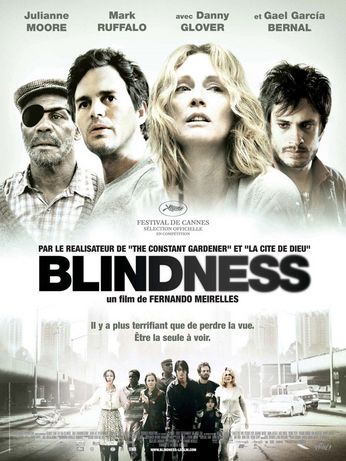
Whenever I find out that a book I like is going to become a movie, I get tense, because the adaptations are not always successful. But, in the case of the movie “Blindness” (USA / BRA, 2008), it was the union of two brilliant minds of the Portuguese language. The book of the same title was written by the Nobel Literature José Saramago, and the film directed by Fernando Meirelles, author of “City of God” (“Cidade de Deus”, BRA, 2002). Add to that a marvelous cast, and the result was an exceptional film.
The story begins at an unidentified time and place, probably in the United States. A man (Yusuke Isea) is struck by a strange blindness in the middle of traffic. The disease has a mysterious character, because as the Doctor (Mark Ruffalo) observes, there is no physiological change, and instead of darkness, the man sees all milky.
Soon the doctor is also affected by the “white blindness” as it is called, as well as people who were in the office : the Man with Black Eye Patch (Danny Glover), the Woman with Dark Glasses (Brazilian actress Alice Braga), a Boy (Mitchell Nye), and others.
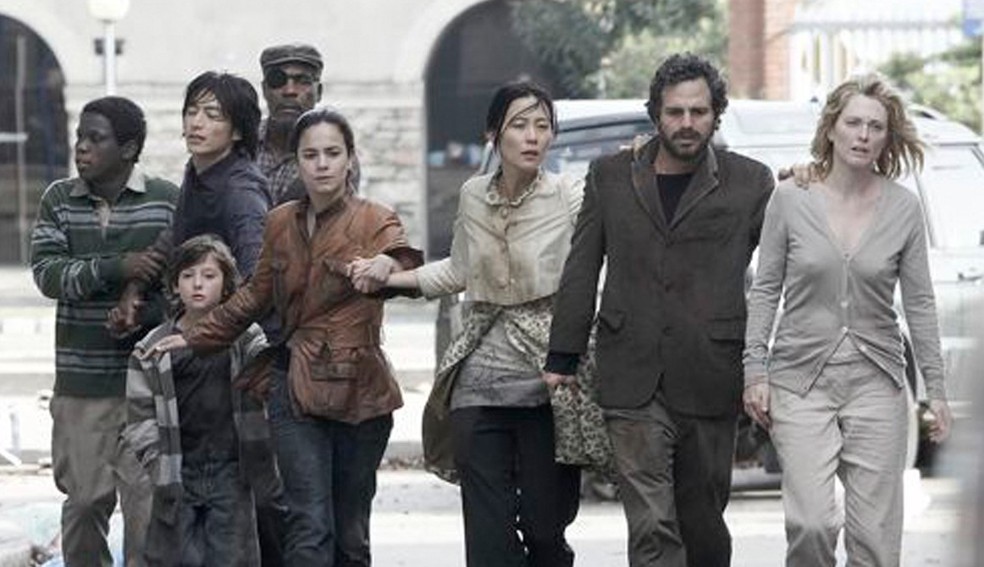
When the disease takes epidemic proportions, the government acts the way it knows how to do best: hide everything from the public. The Doctor and the entire group of contaminated people are taken to an abandoned sanatorium, where they are confined and guarded by armed soldiers. Along with the group goes Doctor’s Wife (Julianne Moore), the only one who had not been affected by the disease.
The Doctor and his wife try to manage the situation, proposing a minimum of organization, although they have difficulties with the Thief (Don McKellar, the film’s screenwriter), who refuses to accept the situation and creates problems with everyone.
Soon, more and more waves of sick people arrive, crowding the dormitories and increasing overcrowding problems. To complicate the situation, a group of newcomers decides to take advantage, dominating the others through force. They are led by the self-proclaimed King of Ward 3 (Gael Garcia Bernal), assisted by the Accountant (Maury Chaykin ), a blind man from birth, therefore, already very well adapted to the situation.
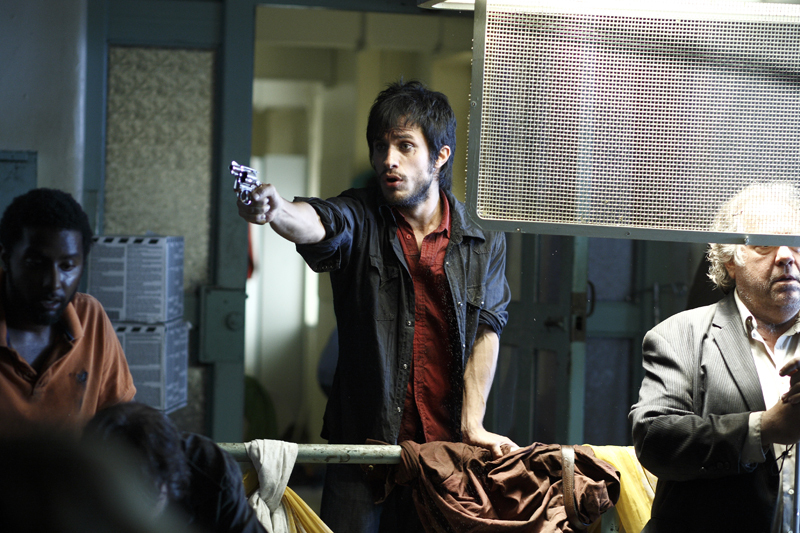
The King’s demands, which at first were money and jewelry, become more absurd, like women themselves, to satisfy his men’s need for sex. Women submit, as it is the only way to get food, but this vision of hell creates a feeling of revolt in the Doctor’s Woman.
This revolt will trigger a true mutiny, where destruction and death will reach the entire sanatorium. That is when they discover that they are alone, left to their own fate, because the soldiers who guarded them were gone.
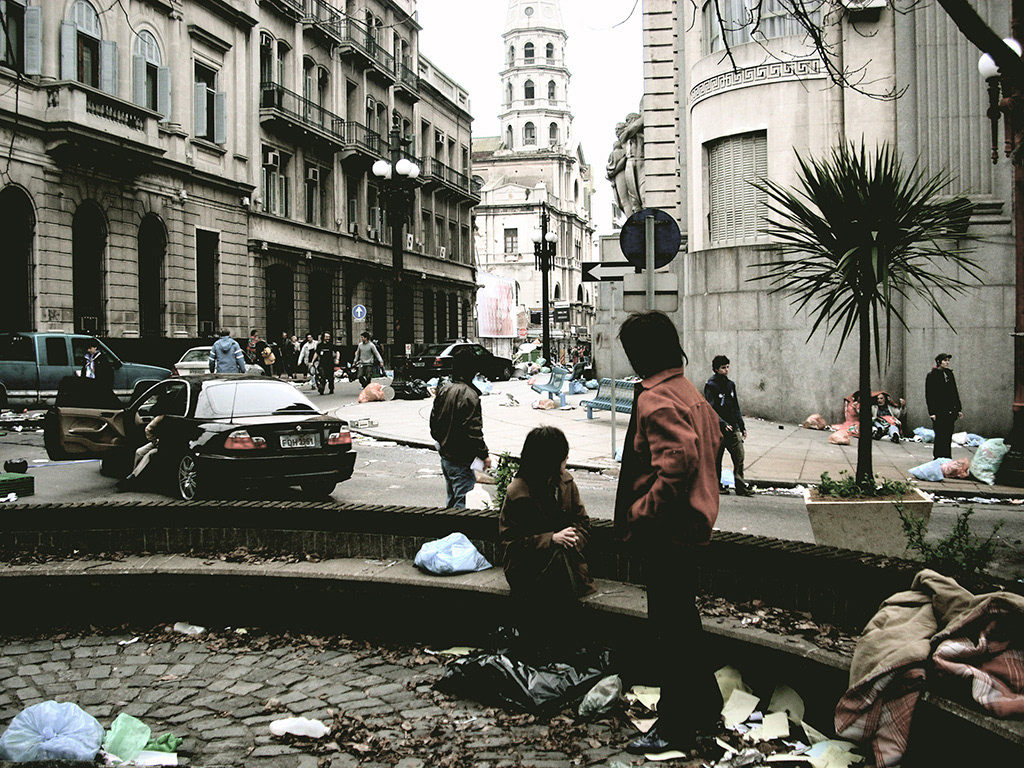
Upon leaving the sanatorium, the group discovers that they are in a world of the blind, completely lost, in complete chaos. Led by the Doctor’s Woman, the only person able to see, they go through a scenario of horror and abandonment, trying to find a safe haven. In this world without vision, people learn to see themselves in other ways, creating new concepts and rules, adapting and accepting new life.
Although it is openly apocalyptic, “Blindness” has no pejorative connotation with the blind. The film brings an interesting speculation about human relations in an environment different from the one we are used to, with the rules and customs of modern society. Would we act differently if we were subjected to the same conditions as the characters? I highly doubt it.
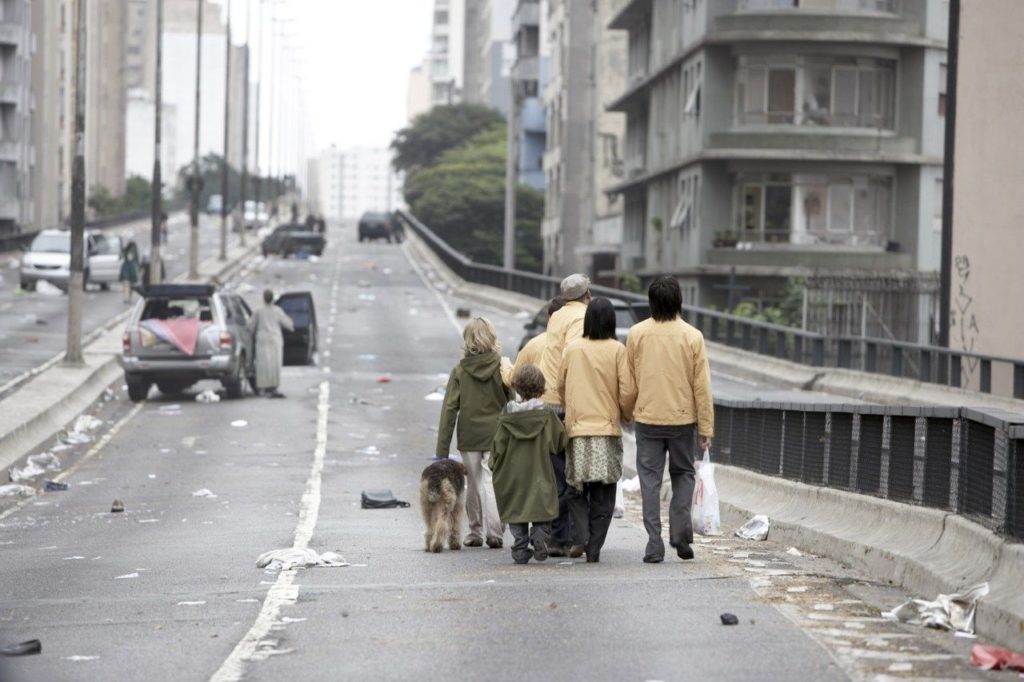
It is possible that some spectator will complain about the raw scenes with dirt, naked people hanging (no pretty one outside Alice Braga), rape simulations, etc .. But if we remember Meirelles’ “City of God,” I want to believe that he softened the situation a lot, because in an environment of chaos, things would be much uglier.
In addition to the exceptional performance of the cast, especially Julianne Moore, Danny Glover and Alice Braga, the cinematography is exquisite, thanks to the director César Charlone, the same for “City of God”. As for the production, the panoramic scenes of the devastated and garbage-strewn city are impressive, which must have been absurd work.
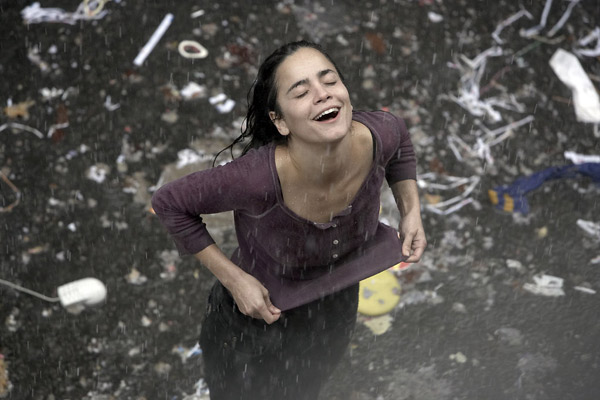
The curious thing is that “Blindness” aroused the furor of associations of the blind persons, because they understood that one of the characters portrayed denigrated the image of people in such a disadvantaged condition. This view, with the forgiveness of the figure, is at least myopic.
It is possible to take other readings of this movie, if we think of the blindness of the characters as the political ignorance that is leading us to the current social, economic and sanitary chaos. Could have Saramago, with his brilliant mind, predicted the level of mental degradation of our society, as we can observe right now? Metaphorical or real, I hope we don’t reach a level of absolute blindness.






